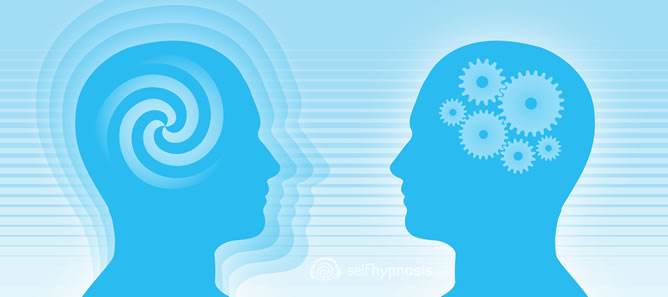Are you tired of feeling trapped in a cycle of depression, with no escape in sight? If so, psychodynamic therapy might be just what you need. This powerful therapy approach helps individuals explore their unconscious mind, uncover the root causes of their depression, and develop new coping skills to overcome it. In this blog post, we’ll dive into the world of psychodynamic therapy for depression. Furthermore, discover how it can help transform your life for the better.
Contents
What is Psychodynamic Therapy?

Psychodynamic therapy is a form of psychotherapy that emphasizes the role of the unconscious mind in shaping behavior. It is based on the theories of Sigmund Freud and his followers and focuses on exploring the origins of psychological distress.
The goal of psychodynamic therapy is to help people become aware of their hidden feelings and motivations so that they can make more conscious choices in their lives. The therapist uses techniques such as free association and interpretation to uncover these deeper issues.
Psychodynamic therapy is typically a long-term treatment, lasting several months or even years. It can help treat depression, anxiety, eating disorders, substance abuse, and relationship problems.
How Does Psychodynamic Therapy Work?
Psychodynamic therapy typically involves meeting with a therapist every week for 50-minute sessions. During these sessions, you will be encouraged to talk about your thoughts, feelings, and experiences. The therapist will also provide interpretation and feedback.
It is important to note that psychodynamic therapy is not the same as psychoanalysis. Psychoanalysis is a more intensive form of treatment that typically requires meeting with a therapist multiple times per week for several years.
Techniques of Psychodynamic Therapy

Some of the techniques used in psychodynamic therapy include:
Free Association
One of the main techniques used in psychodynamic therapy is free association. This involves the patient being encouraged to speak freely about anything that comes to mind without censoring themselves or trying to control the conversation.
The therapist will then listen without judgment and provide feedback or interpretations based on what they hear. This process can help uncover thoughts, feelings, and memories that may have been buried in the unconscious mind.
Dream Analysis
Another common technique used in psychodynamic therapy is dream analysis. This involves the therapist exploring a patient’s dreams to try and uncover hidden meanings that can provide insight into their life and their current struggles.
The therapist will also help the patient identify any patterns or recurrent themes that may be appearing in their dreams.
Interpretation
The therapist will also provide interpretations of the patient’s behavior and thoughts based on what they have discussed. Furthermore, This can help the patient gain a better understanding of their motivations and feelings, which can lead to improved self-awareness.
When done correctly, interpretation can be a powerful tool for helping people gain insight into their lives and how they interact with the world.
Freudian Slip
Another technique used in psychodynamic therapy is Freudian slips. This involves the patient saying something that may reveal unconscious thoughts or feelings.
The therapist will then help the patient explore and interpret this slip to gain insight into why it was said and what it might mean for their current situation. Sometimes, this can be a great way to uncover deep-seated issues that the patient may not have been aware of before.
Transference Analysis
An important part of psychodynamic therapy is transference analysis. This involves the patient transferring their feelings to the therapist in a way that can be explored and interpreted.
This process can help the patient gain insight into their relationships and behaviors. It as well as uncover any unresolved issues or conflicts from childhood or past experiences.
Technical Neutrality
Sessions of psychodynamic therapy are conducted with the therapist maintaining a state of technology neutrality. This means that the therapist will not give advice or make any judgmental comments about the patient’s situation, but rather provide an unbiased and non-judgmental environment for exploration and insight.
This allows the patient to feel safe in exploring their thoughts and feelings without fear of being judged.
By utilizing these techniques, psychodynamic therapy can be a powerful tool for helping people with depression. It helps them gain insight into their lives and make meaningful changes.
The Benefits of Psychodynamic Therapy

Psychodynamic therapy is a powerful form of therapy that can help people who are struggling with depression and other emotional or mental health issues. It can be particularly beneficial for those who have been unable to find relief from more traditional therapies.
Some of the benefits of psychodynamic therapy include:
- Increased self-awareness: One of the main goals of psychodynamic therapy is to help individuals understand their behavior and thoughts. Through this increased self-awareness, people can make better decisions and find greater satisfaction in their lives.
- Improved relationships: By exploring underlying issues, people can gain a better understanding of their relationship dynamics. This improved insight can lead to more meaningful connections with others.
- Reduced symptoms of depression: Psychodynamic therapy can help reduce the severity of depressive symptoms and improve overall mental health. Some studies have found that psychodynamic therapy is just as effective as antidepressant medications for treating depression.
- Increased resilience: By exploring and understanding their emotions, people can learn to cope with difficult situations more healthily. This increased emotional resilience can help them face future challenges more effectively.
The Drawbacks of Psychodynamic Therapy
Every form of therapy has its benefits and drawbacks. It is important to consider both the potential advantages and disadvantages of psychodynamic therapy before deciding if it is right for you.
The main drawbacks of psychodynamic therapy include:
- Longer treatment duration: Psychodynamic therapy can take several months or even years to complete. It may not be suitable for everyone.
- The potential for emotional discomfort: Exploring unconscious issues can be emotionally difficult and may lead to distress or anxiety. Furthermore, This is why it is important to find a therapist who you trust and feel comfortable with.
- Expense: Psychodynamic therapy can be expensive, particularly if it is done on an individual basis rather than through a group setting. Exact costs will vary depending on where you live and your insurance coverage.
How to Find a Psychodynamic Therapist?

If you are looking for a psychodynamic therapist to help you with depression, there are a few things to keep in mind.
- First, it is important to find a therapist who has experience treating depression.
- Second, you will want to find a therapist who is a good fit for you.
- Lastly, it is important to make sure that the therapist you choose uses evidence-based methods.
To find a qualified psychodynamic therapist, start by asking your primary care doctor for a referral.
- You can also ask friends or family members if they know of any therapists they would recommend. Furthermore, Once you have some names, research each therapist online to see if they have experience treating depression.
- When you narrow down your list, contact each therapist and ask them about their approach to treatment and whether they think they would be a good fit for you.
- Finally, make sure to ask about the therapist’s fees and whether they accept your insurance.
Conclusion
We hope this article has provided you with an overview of psychodynamic therapy for depression and the benefits it can offer. This type of therapy is effective in helping people gain insight into their issues, bring about change in a meaningful way, and build better relationships with themselves and others. If you are considering psychodynamic therapy for yourself or someone else, discussing your options with a mental health professional is essential to ensure it will be useful in treating depression symptoms and overall well-being.
For more information, please contact MantraCare. Depression is a mental illness characterized by persistent feelings of sadness, hopelessness, and loss of interest in daily activities. If you have any queries regarding Online Depression Counseling experienced therapists at MantraCare can help: Book a trial Depression Therapy session


